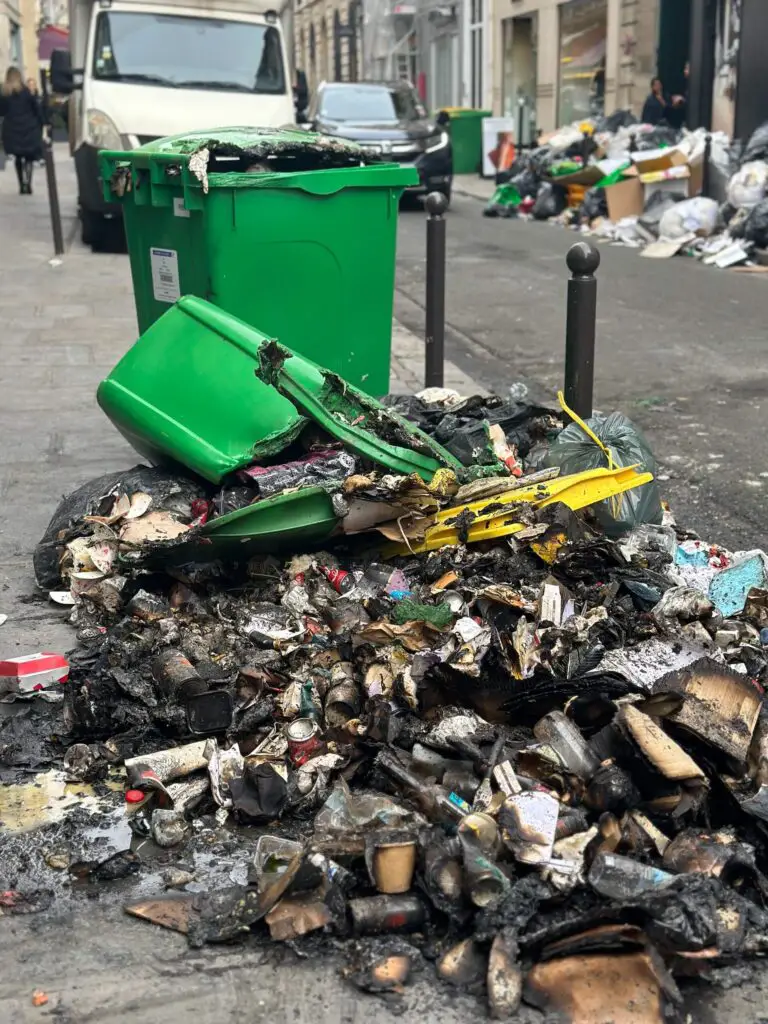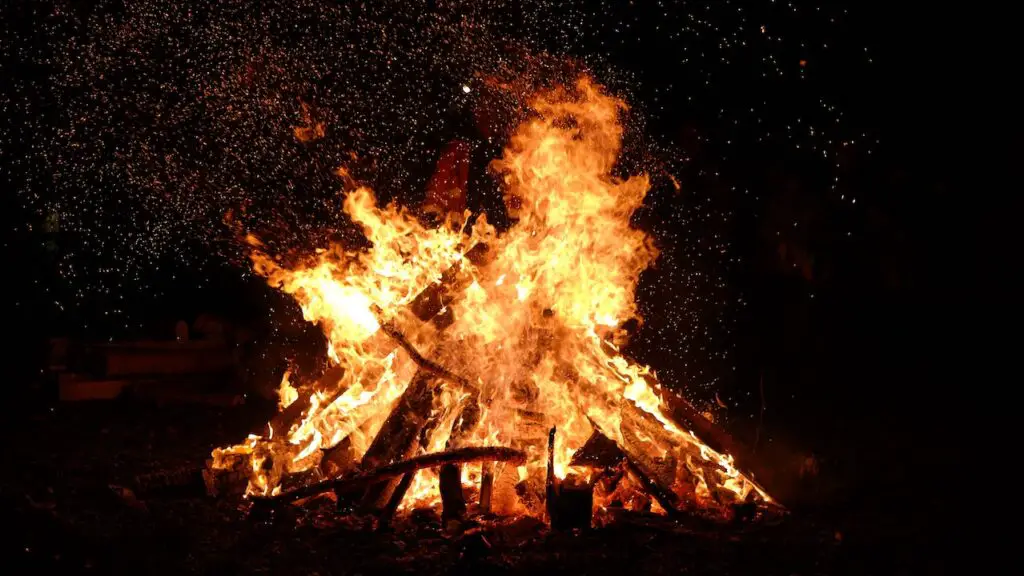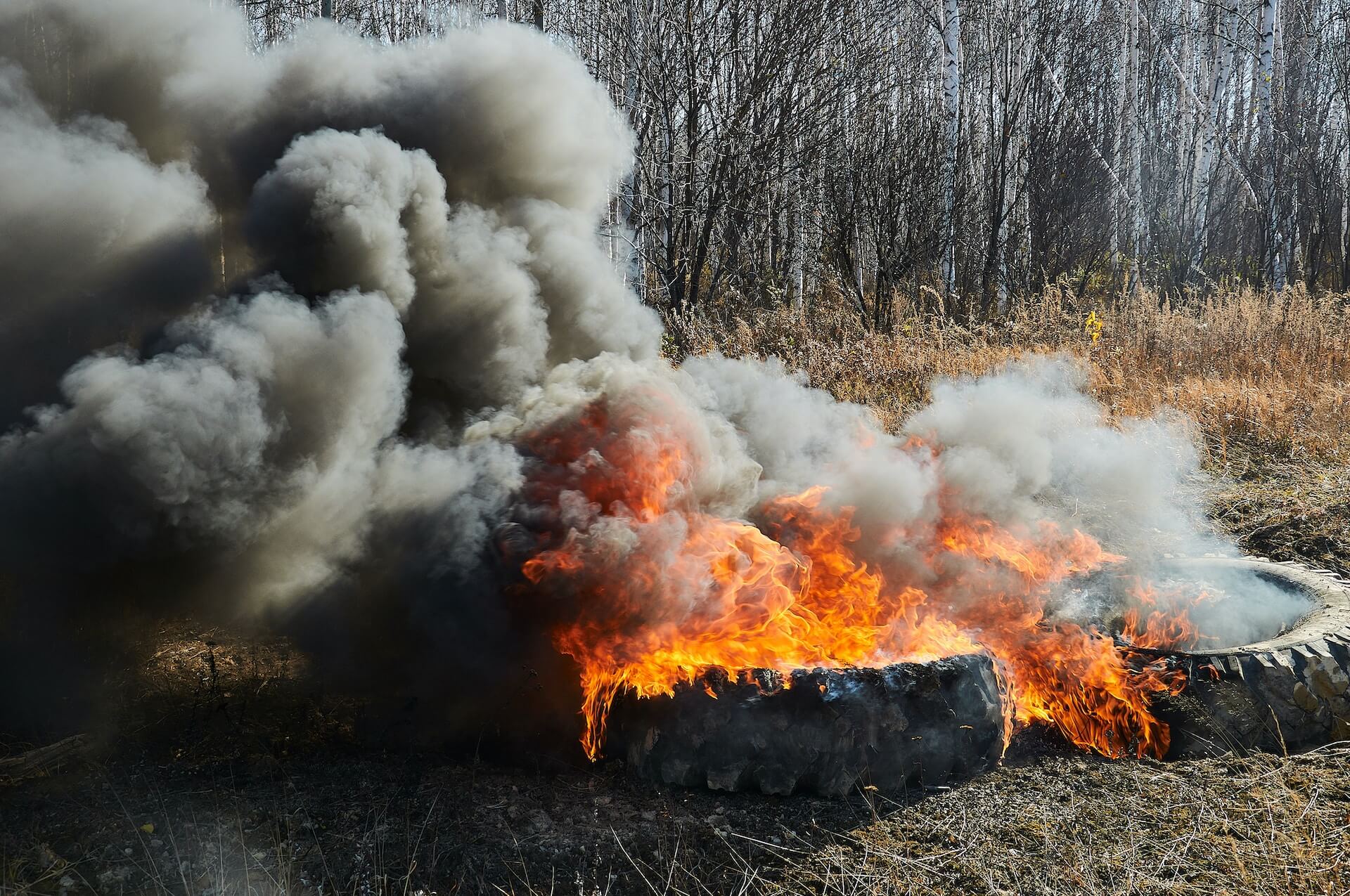Imagine waking up to the acrid smell of burning plastic drifting through your window. It’s a situation that many residents in the UK and around the world have faced. This blog explores the issue of neighbours burning plastic in the UK, its environmental implications, the legal aspects, and what you can do to address this problem.
The Environmental Concern
The burning of plastic waste poses a significant environmental concern in the UK.
Plastic is composed of synthetic polymers that release harmful chemicals when burned, including dioxins and furans, both of which are highly toxic.
These chemicals can contaminate the air, soil, and water, leading to severe health risks for humans and wildlife.
Air Pollution:
Burning plastic releases toxic fumes that can have immediate and long-term effects on human health.
Breathing in these fumes can cause respiratory problems, aggravate asthma, and even lead to cancer. Moreover, the release of greenhouse gases contributes to climate change, which has far-reaching consequences for our planet.
Soil and Water Contamination:
The ash and residues from burnt plastic can contaminate the soil and water sources.
This contamination disrupts ecosystems and can harm wildlife, including aquatic life, which may ingest plastic particles, leading to bioaccumulation in the food chain.
Impact on Wildlife:
Plastic pollution is already a severe issue for wildlife, and burning plastic exacerbates the problem.
Birds and animals may mistake plastic particles for food, leading to ingestion and often fatal consequences.

Is It Illegal To Burn Plastic?
In the UK, burning plastic waste is illegal, and the Environmental Protection Act 1990, Part II, Section 33, specifically prohibits it. However, enforcing this law can be challenging due to various factors, including a lack of awareness, limited resources, and difficulties in catching offenders.
Burning plastic waste is subject to regulations and laws that prohibit such activities due to the significant environmental and health risks associated with it.
The Environmental Protection Act 1990, Part II, Section 33 makes it an offence to dispose of waste in a manner likely to cause pollution of the environment or harm to human health. Burning plastic falls under this category as it releases harmful chemicals and pollutants into the air, soil, and water.
Additionally, the Clean Air Act 1993 also regulates air quality in the UK and prohibits activities that emit dark smoke or noxious fumes, including burning plastic.
It’s important to note that local authorities may have specific regulations and bylaws regarding waste disposal, and these regulations can vary from one area to another.
However, burning plastic waste is generally considered illegal and is not an acceptable method of waste disposal in the UK.
Individuals and businesses are encouraged to follow proper waste disposal practices, which often include recycling, using designated waste collection services, or disposing of waste at authorised waste disposal facilities to ensure environmental protection and compliance with the law.
What to Do If a Neighbour Is Burning Plastic?
If you find yourself in a situation where a neighbour is burning plastic in their garden, and it’s causing a nuisance in the UK, it’s essential to address the issue responsibly and in accordance with local laws and regulations.
Here is a step-by-step guide on what you should do:
1 – Stay Informed About Local Regulations:
Before taking any action, familiarise yourself with local regulations and laws regarding burning plastic waste.
In the UK, it is generally illegal to burn plastic waste under the Environmental Protection Act 1990, Part II, Section 33.
2 – Document the Incidents:
Keep a record of each incident when you witness your neighbour burning plastic.
Note the date, time, and location of each occurrence. It is handy to keep a separate evidence book that you can pass to Environmental Health if you need to report your neighbour. You should also note if the burning plastic is impacting the enjoyment of your property.
For example, are there days when you can’t open your windows because of the smoke?
If possible, take photographs or videos discreetly to document the burning. If your neighbour is regularly burning plastic but you are struggling to catch them in the act, setting up a home security camera, such as the Eufy Security Camera from Amazon will help.
3 – Discuss the Issue with Your Neighbour:
Approach your neighbour in a polite and non-confrontational manner to discuss your concerns.
They may not be aware of the harm caused by burning plastic.
Explain the environmental and health risks associated with this practice and express your desire for a resolution. Hopefully discussing the issue with your neighbour will stop them from burning plastic.
You could follow up with a letter to your neighbour if talking face to face didn’t help or if you don’t feel comfortable talking to your neighbour in person.
4 – Suggest Alternative Disposal Methods:
During your conversation with your neighbour, suggest alternative methods of disposing of plastic waste, such as recycling or using waste disposal facilities.
Encourage them to adopt more eco-friendly practices.
5 – Report Neighbour for Burning Plastic:
If discussing the issue with your neighbour does not yield positive results or if the problem persists, contact your local environmental agency or council to report your neighbour for burning plastic.
Provide them with the documented evidence you’ve collected, including dates, times, and photos/videos.
Be clear about how the burning affects you, your family, and your property, emphasising the environmental and health concerns.
6 – Seek Mediation (If Necessary):
In some cases, mediation services may be available to help resolve disputes between neighbours.
Contact your local council or a mediation service to explore this option.
7 – Consult with Legal Professionals:
If all else fails and your neighbour continues to burn plastic despite your efforts and the involvement of local authorities, consult with a solicitor to explore your legal options.
They can provide advice on taking legal action, such as obtaining an injunction.
8 – Engage the Community:
Encourage other neighbours who may be affected by the issue to join you in addressing the problem collectively.
A united community voice can have a more significant impact in resolving the issue.
9 – Stay Informed and Persistent:
Keep yourself informed about any updates or actions taken by local authorities. Be persistent in pursuing a resolution to ensure that the issue is adequately addressed.
Remember that addressing the issue of neighbours burning plastic should prioritise a peaceful and constructive approach.
It’s essential to follow the appropriate legal channels and engage with your neighbour respectfully. Ultimately, the goal is to find a solution that benefits both you and your neighbour while protecting the environment and community health.

What Are The Penalties For Burning Plastic In The UK?
Penalties for burning plastic in the UK can vary depending on the specific circumstances, the severity of the offence, and whether it is an isolated incident or part of a larger pattern of illegal waste disposal.
Here are some potential penalties that individuals and businesses may face for burning plastic in the UK:
Fines:
Individuals or businesses caught burning plastic waste can face fines imposed by local authorities or environmental agencies. The amount of the fine can vary, but it can be substantial, depending on the severity of the offence.
Prosecution:
In more serious cases or if repeated offences occur, individuals or businesses may be prosecuted under the Environmental Protection Act 1990 or other relevant environmental legislation.
If convicted, they could face criminal charges, which may result in fines, community service, or even imprisonment.
Clean-up Costs:
Perpetrators of illegal waste burning may be held responsible for the costs associated with cleaning up and mitigating the environmental damage caused by their actions.
Civil Action:
Affected parties, such as neighbours or local authorities, may also take civil action against those responsible for illegal plastic burning to seek compensation for any damages or harm caused.
Injunctions:
Local authorities or environmental agencies may seek court-issued injunctions to prevent individuals or businesses from continuing to burn plastic waste.
Violating an injunction can lead to further legal consequences.
Seizure of Assets:
In severe cases or when businesses are involved, authorities may seize assets related to the illegal activity, such as vehicles or equipment used for waste disposal.
It’s important to note that penalties can vary based on the specific laws and regulations in place in different parts of the UK, and they may be subject to change over time.
The severity of penalties may also depend on factors such as the scale of the illegal waste burning operation, the harm caused to the environment, and whether the offender has a history of environmental violations.
To avoid legal penalties and protect the environment, individuals and businesses should adhere to proper waste disposal practices and avoid burning plastic or other prohibited materials.
Final Thoughts About Neighbours Burning Plastic
Neighbours burning plastic is a concerning issue in the UK due to its severe environmental and health consequences.
Individuals, communities, and authorities must work together to address this problem effectively.
By raising awareness, promoting responsible disposal methods, and supporting local initiatives, we can reduce plastic pollution and protect our environment for future generations.
Remember that the key to resolving this issue lies in education, collaboration, and a commitment to sustainable living.





Leave a Reply